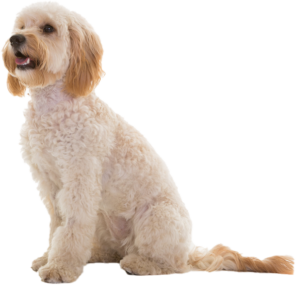Dealing with an aggressive dog can be challenging and even intimidating. Aggression in dogs can manifest in various ways, including growling, barking, lunging, or even biting. However, with patience, understanding, and the right approach, it is possible to manage and improve the behavior of an aggressive dog. In this article, we will explore effective strategies for handling an aggressive dog and fostering a harmonious relationship.

Recognize the Signs: The first step in handling an aggressive dog is to understand the signs of aggression. This includes observing body language cues such as raised hackles, stiff body posture, intense staring, or showing teeth. By recognizing these signs, you can anticipate and respond appropriately to prevent escalation.
Seek Professional Guidance: Dealing with aggression requires professional expertise. Consult with a certified dog behaviorist or trainer who specializes in aggression cases. They can assess your dog’s behavior, provide a proper diagnosis, and guide you through a tailored training plan to address the aggression effectively.
Create a Safe Environment: Establish a secure and controlled environment for your aggressive dog. Use sturdy leashes, secure fencing, and appropriate muzzles if necessary to ensure the safety of your dog, yourself, and others. Limit interactions with unfamiliar people or animals until your dog’s behavior improves.
Implement Positive Reinforcement Training: Positive reinforcement training techniques can be highly effective in modifying aggressive behavior. Use rewards such as treats, praise, and toys to reinforce desirable behaviors, such as calmness and obedience. Reward-based training helps redirect your dog’s focus and encourages positive associations.
Consistency and Routine: Establishing a consistent routine is crucial for an aggressive dog. Set clear boundaries, establish regular feeding times, and implement a structured daily schedule. Consistency provides stability and helps reduce anxiety and stress, contributing to a more balanced and calm state of mind.
Manage Triggers: Identify the specific triggers that provoke aggression in your dog. It could be certain situations, people, or other animals. Once identified, work on desensitizing and counter-conditioning exercises. Gradually expose your dog to these triggers in a controlled manner, rewarding calm and non-aggressive behavior to change their emotional response.
Practice Patience and Empathy: Dealing with an aggressive dog requires patience, empathy, and understanding. Remember that aggression is often rooted in fear, anxiety, or past experiences. Approach your dog with compassion and avoid punishment-based training methods that may escalate aggression.
Provide Mental and Physical Stimulation: Engage your dog in regular exercise and mental stimulation to help channel their energy positively. This can include daily walks, interactive toys, obedience training, and puzzle games. Mental and physical stimulation can reduce stress, promote relaxation, and improve overall behavior.
Consider Professional Interventions: In severe cases of aggression, additional interventions such as medication or specialized therapies may be necessary. Consult with a veterinarian or veterinary behaviorist to explore these options and determine the best course of action for your dog’s well-being.
Practice Responsible Ownership: Responsible ownership is crucial when dealing with an aggressive dog. This includes proper socialization, adherence to local leash laws, and ongoing training and monitoring. Stay informed about dog behavior and seek continuous education to ensure the safety and happiness of both your dog and those around you.
Remember, handling an aggressive dog requires time, patience, and professional guidance. Each dog is unique, and the approach to addressing aggression may vary. With dedication and a commitment to positive reinforcement and understanding, you can help your dog overcome aggression and build a harmonious relationship based on trust and love.
Don’t forget to check out our shop page here on our website to see lots of cool pet products!
As an Amazon Associate we earn from qualifying purchases through some links in our articles.




